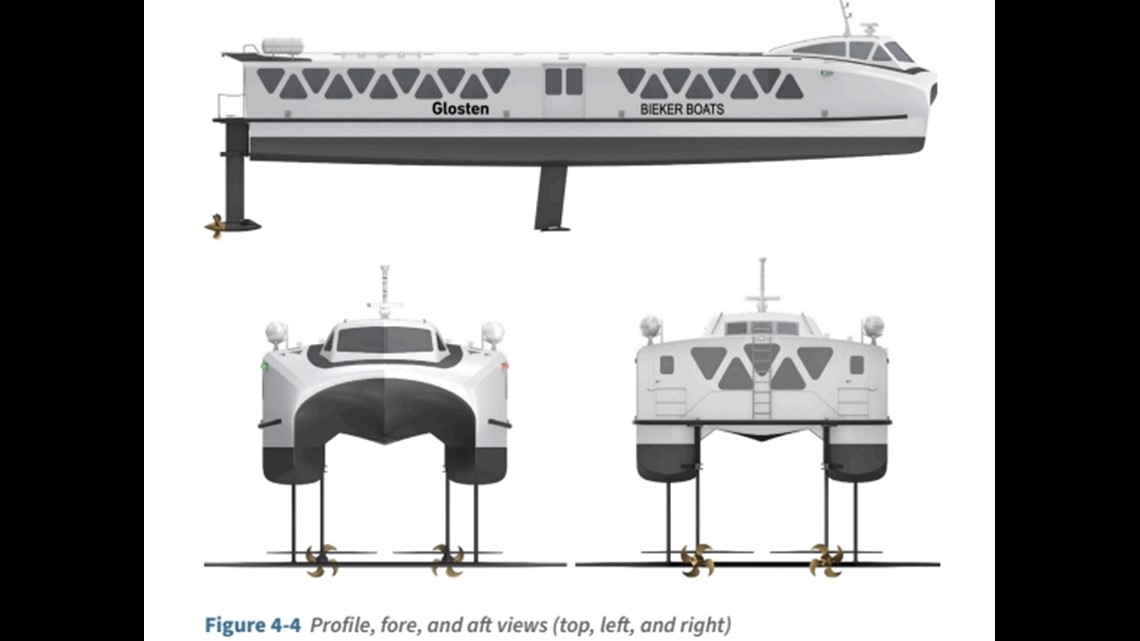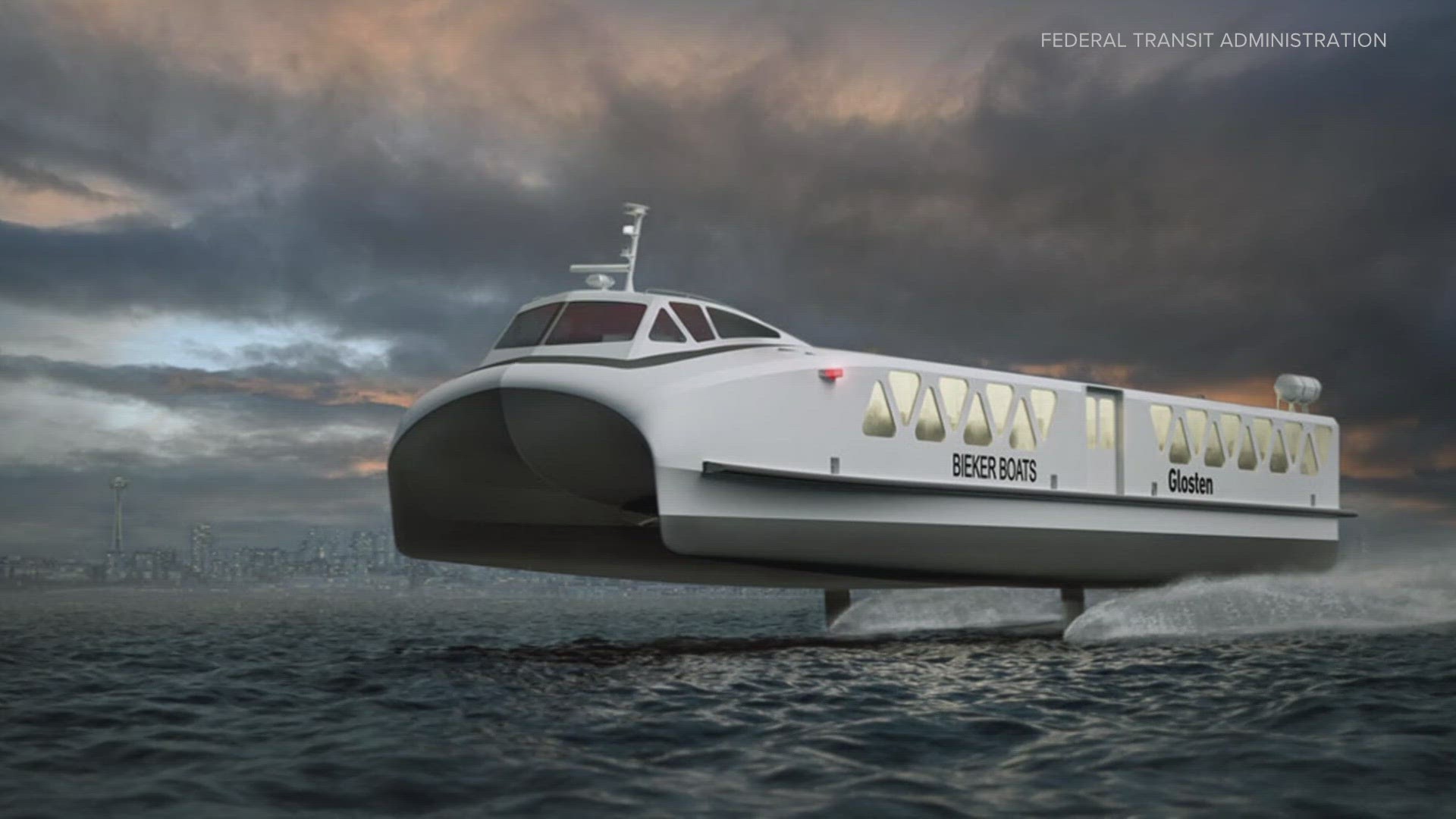BREMERTON, Wash. — The Federal Transit Administration published a preliminary design report for an all-electric 150-passenger Kitsap Transit ferry expected to serve on the Bremerton-Seattle route.
The electric fast foil ferry is being developed in hopes of creating a zero-emission vessel as an alternative to the current diesel vessels.
According to the preliminary design, the ferry will have its hull raised above the water, lifted by hydrofoils. The design is intended to reduce the impact on sensitive areas such as Rich Passage, and create a smoother ride for passengers.
The ferry would be able to make the cross from Bremerton to Seattle in 32 minutes on one battery charge.
The design process began in 2020 when Kitsap Transit received a research award from the FTA to improve the technology design and business of ferries.
The Bremerton-Seattle route, which is 13.7 miles long, was chosen earlier this year because it had the highest ridership of the three fast-ferry routes from Kitsap Transit. The ferry would recharge on the Bremerton end of the route. According to the report, the electric ferry is expected to make eight round trips a day for 257 days a year, which corresponds to weekdays only.
The design of the proposed ferry is notable because it features hydrofoils, which according to the report, produce a hydrodynamic lift and raise the hull above the water. In addition, the ferry will be constructed using lightweight carbon fiber.


Stakeholders in the project include Kitsap Transit, local ports and utility authorities, as well as Glosten and Bieker Boats, which prepared the report.
According to the report, the ferry would cost $261,752 in electricity annually and require less than one-third of the energy of existing fast ferries.
Kitsap Transit Is seeking $18.5 million from the federal Department of Transportation and the Federal Transit Administration to support shoreside infrastructure, create a 1:5 scale prototype of the electric ferry to test and future construction of the final vessel itself. The cost estimate for the construction of the final foil ferry is around $14 million.
There is not an exact date when the electric ferry would be ready for its maiden voyage.
To read the full Foil Ferry Preliminary Design Report, visit the U.S. Department of Transportation website.

